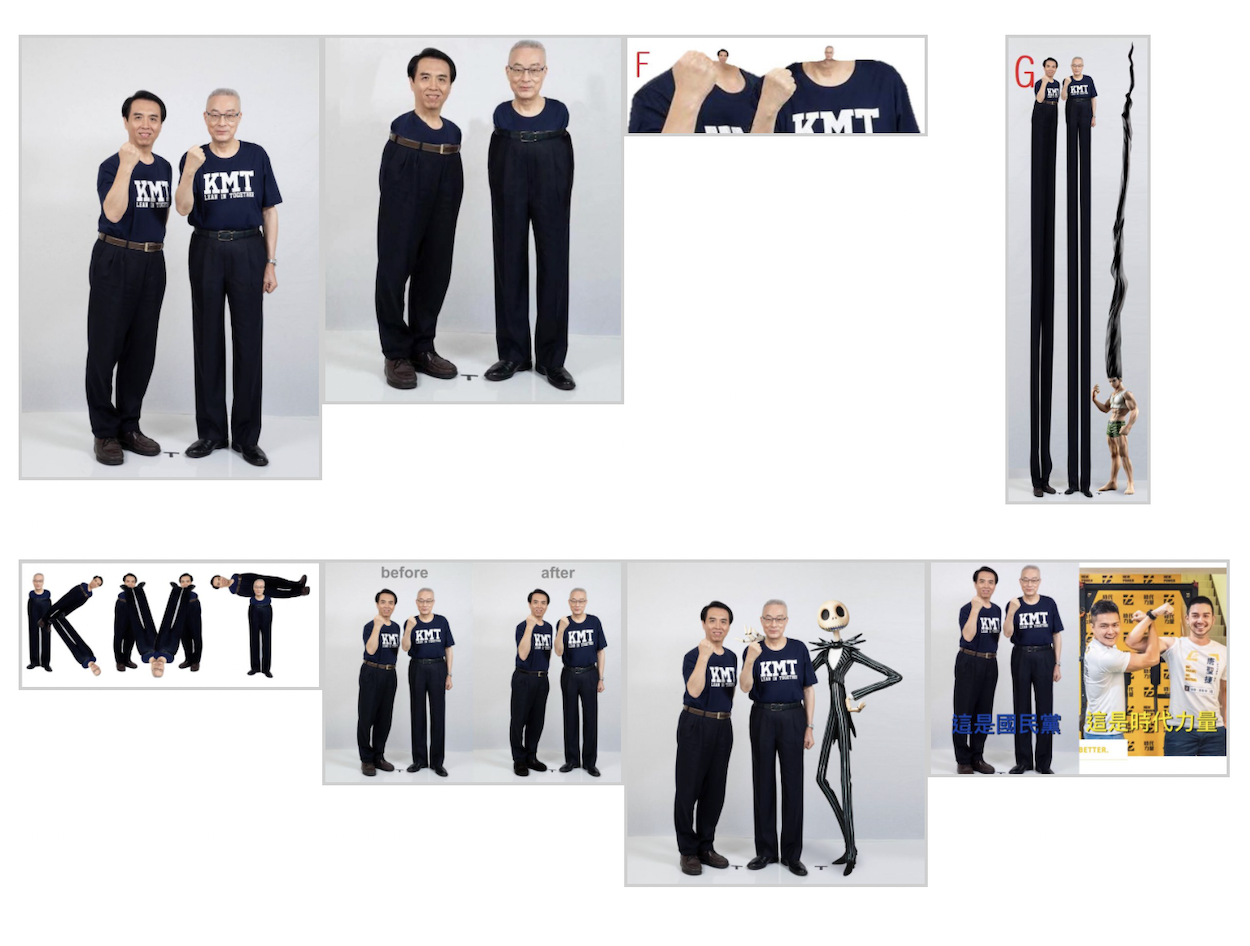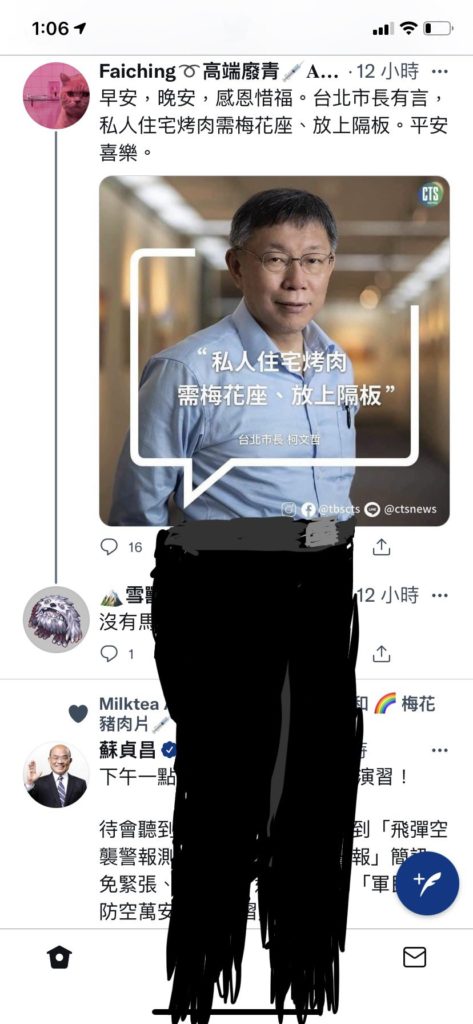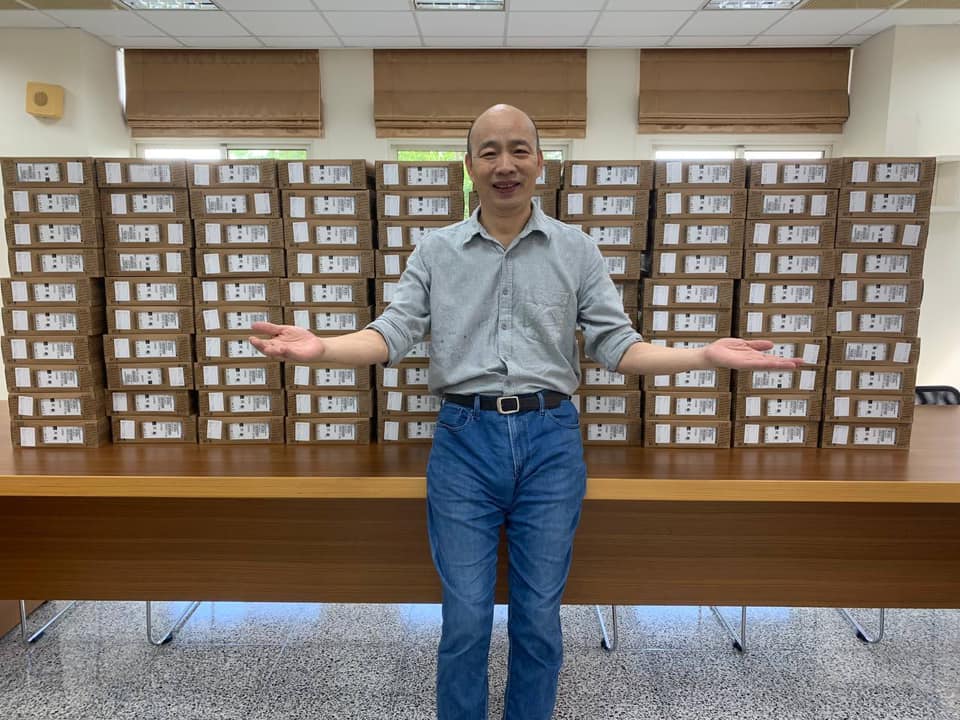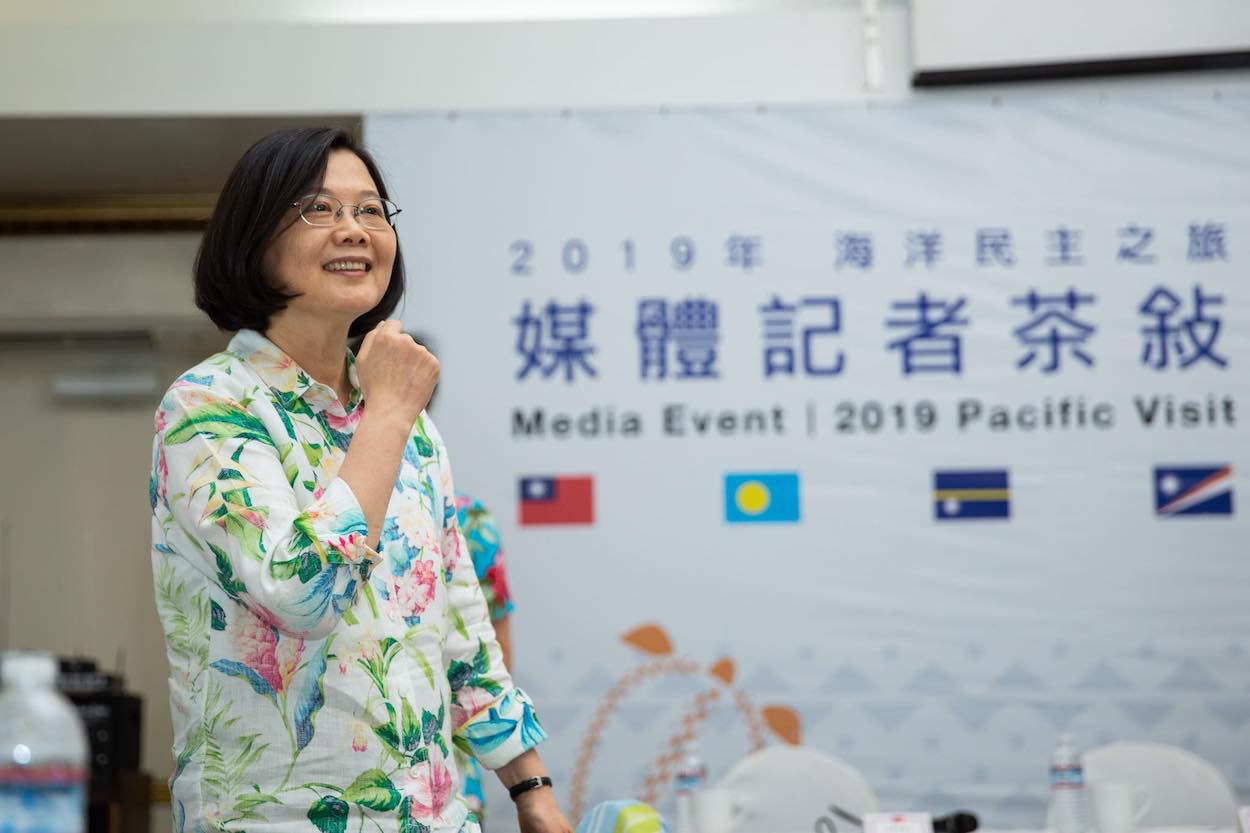by Brian Hioe
語言:
English
Photo Credit: Artemas Liu/WikiCommons/CC
THE KMT IS a party that seemingly does not know how to wear pants.
The jokes started in 2018 after legislator Apollo Chen and then-chair Wu Den-yih appeared in a publicity photo together, awkwardly posing with their fists. If this wasn’t bad enough their pants went all the way above their waists, in a grandfatherly fashion. The image sparked a seemingly endless number of memes.

Memes poking fun of then-KMT chair Wu Den-yih and then-legislator Apollo Chen
Since then, though, other pan-Blue politicians have provoked laughter for also wearing their pants hitched up. This includes individuals such as Kaohsiung mayor Han Kuo-yu and Taipei mayor Ko Wen-je.
Where Taiwanese politics are concerned, pants have sometimes been figured as a symbol of…masculinity. This is not just pan-Blue. Pan-green Taiwanese independence activist Koo Kwang-ming once lashed out at President Tsai Ing-wen, Taiwan’s first female president, by claiming that he could not stomach a skirt-wearing woman leading the ROC military.

Taipei mayor Ko Wen-je. Image by Kíng hông-lū (@cyberlancer) on Twitter
But why the seeming inability to wear pants from the KMT? Maybe it has to do with the fact that the KMT is a party that overwhelmingly consists of men in its leadership—and old men at that. Research seems to indicate that for most individuals, their sense of fashion freezes once a certain age and stops changing. Perhaps that’s what happened with the KMT—showing how the KMT is a party of old men.

Former Kaohsiung mayor Han Kuo-yu. Photo credit: Han Kuo-yu/Facebook
With the KMT struggling to win support from Taiwanese young people, some more moderate KMT politicians have sought to signal their differences from the party establishment through sartorial choices. Eric Chu, who won the party chair elections last Saturday, at age 60, is peers with Apollo Chen, who is 63. However, in the 2020 elections, when Chu sought the KMT’s presidential nomination, Chu tried to indicate that he would be a leader that could win back the support of young people with a distinctively hipster-ish fashion choice. This was not successful, but Chu remains the only real party heavyweight in the KMT to have attempted a fashion makeover to that effect. This has been toned down more recently, but during his successful bid for chair, Chu still struck a more casual look than the candidates he defeated, appearing with a polo shirt rather than a formal suit in KMT chair debates.

Newly elected KMT chair Eric Chu. Photo credit: Eric Chu/Facebook
One might compare with President Tsai’s embrace of Hawaiian shirts in 2020 elections during her election bid, something that was a hit with the Taiwanese public. This took off after Tsai transited Hawaii on her way to visit South Pacific allies of Taiwan, it being a tradition for visiting foreign officials to wear Hawaiian shirts when visiting. The shirts proved a hit with young people, allowing Tsai to break out of her uptight image—though the Hawaiian shirts quickly vanished once Tsai won office again in 2020.

Tsai Ing-wen wearing a Hawaiian shirt. Photo credit: Tsai Ing-wen/Facebook
Either way, by contrast to the KMT, the DPP is seemingly a party with a number of politicians willing to take daring fashion risks. This includes legislator Freddy Lim, a heavy metal musician, and cosplayer Lai Pin-yu. Digital minister Audrey Tang has also proven willing to dress in avant-garde fashion choices before, as well. Perhaps all this points to how fashion intersects with politics in today’s Taiwan.


